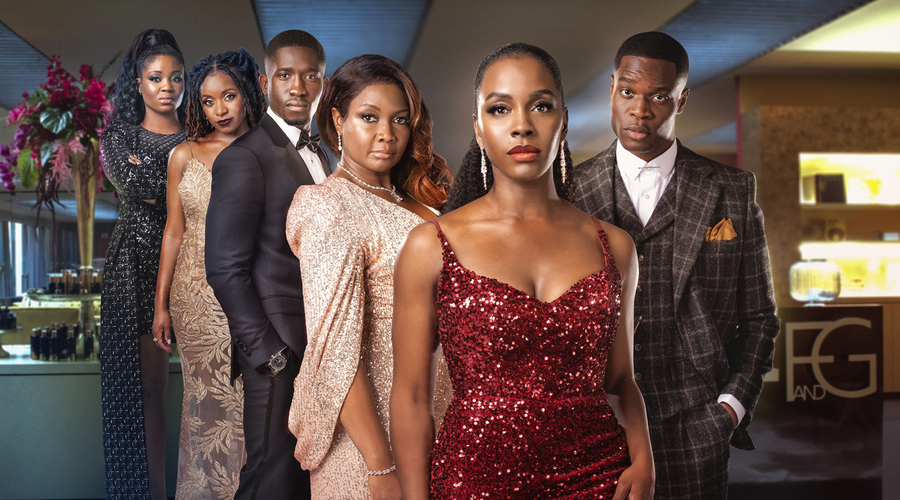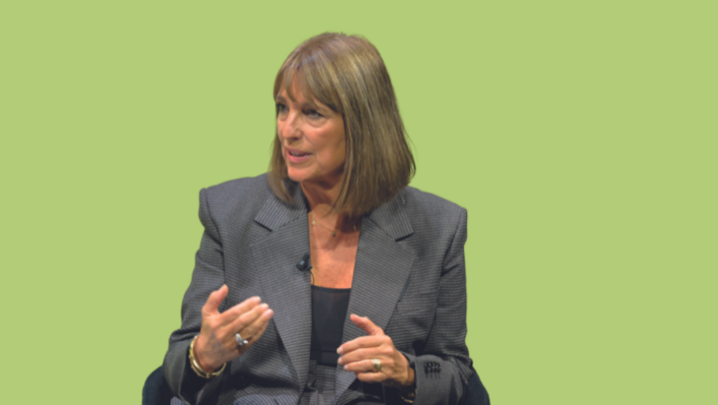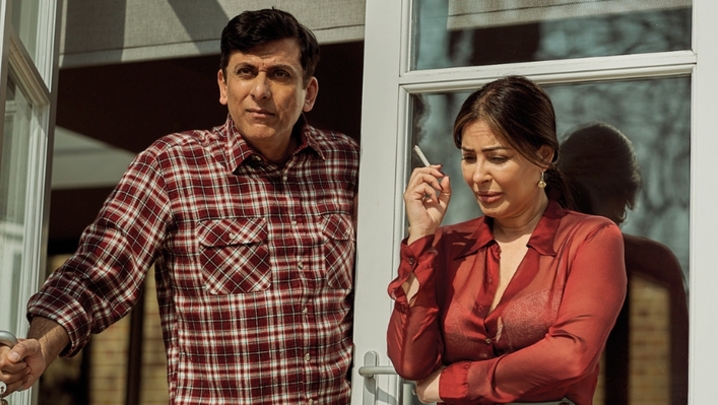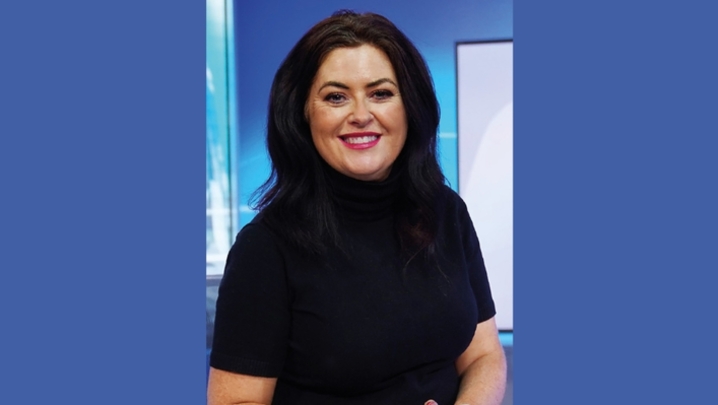ITVX drama Riches breaks new ground by putting female Black British creatives to the fore, reports Shilpa Ganatra
You could practically hear the eye roll of black actor Steve Toussaint, Lord Velaryon in House of the Dragon, when he responded to the backlash about his casting in the role earlier this year. “They are happy with a dragon flying. They’re happy with white hair and violet-coloured eyes, but a rich, black guy? That’s beyond the pale,” he sighed.
Certainly, while society sees people of all colours straddle all classes, including the higher echelons, British television has been slower, across the board, to peel away from stereotypes.
Here to change that in fine style is Riches, a glitzy series about the wealthy family behind a hair and beauty empire, who are left reeling after the sudden death of their patriarch and CEO, Stephen Richards (Hugh Quarshie). When he includes his New York-based daughter Nina (Deborah Ayorinde) and son Simon (Emmanuel Imani) from a former relationship in his will, it causes ructions with the wife, Claudia (Sarah Niles), and children of his present family.
Airing on ITVX in December before its linear-TV showing next year, it is quickly evident that the innovations it makes in character and context – it also speaks to themes of black beauty and blended families – take second place to the drama of it all.
Writer Abby Ajayi (Inventing Anna, Four Weddings and a Funeral) says: “I’ve always been fascinated by family dramas, both fictional and real-life ones – whether you’re talking about the Royal Family, the Kardashians, the Guccis, the Murdochs. It’s so interesting how murky and muddy things get when money and family mix.”
The series revolves around Nina, who is left to save the company, but has do so while grappling with her own abandonment issues. Along the way, she makes startling discoveries about the business. Will the different factions of the family come together to save the company, or will their thirst for power rip it apart?
"The UK is… behind the US in its portrayals of… people of marginalised groups"
The series was brought to life by Ajayi with Nadine Marsh-Edwards and Amanda Jenks at Greenacre Films (Been So Long, Unsaid Stories), who quickly found interest from ITV. “But because this is a story that’s set in the world of rich people, we needed more finance,” explains Marsh-Edwards. “And because of our connections in the US, we had to pitch to American companies. We were thrilled that Amazon Studios came on board and allowed us to make the series in the way we wanted to make it.”
Even then, “it wasn’t a massive budget at all, so we had to be resourceful,” continues Jenks. “We had to have big chats and storyboard with all the directors to establish how we were going to do it on our budget. We didn’t go to New York, for instance – hopefully, no one will notice that when they watch the show.
“Music was important in creating atmosphere, and we found a few undiscovered bands. It was important for us to be as creative as possible, so no one is thinking anything other than, ‘Wow, that looks amazing,’ when watching the show.”
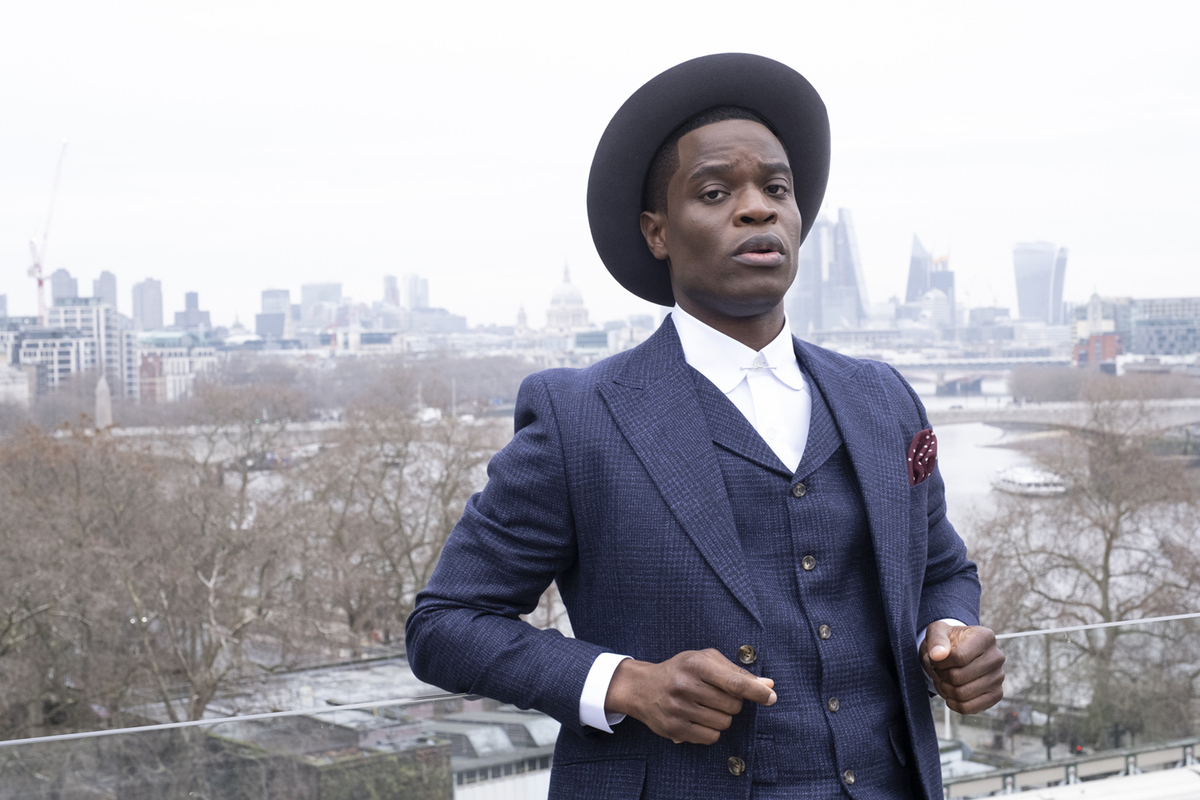
Casting proved a challenge, as the actors not only had to prove their talent, but they also needed to gel as an ensemble of family members. “Aisha Bywaters was a great casting director because she knows everyone,” says Marsh-Edwards. “What didn’t help was that all the auditions were done by Zoom, because it was done during Covid. Abby or one of the directors was in the room after having Covid tests, and the rest of the execs watched via video. But, once we all got in a room with them, we could see that it worked.”
Adds Jenks: “We’re proud that we’ve found some fantastic actors who are not necessarily known to audiences. We’ve found some stars of the future, and they’re held [together] by experienced actors such as Hugh Quarshie and Sarah Niles.
“It was great to offer interesting non-lead roles to Brendan Coyle (Downton Abbey) and Hermione Norris (Spooks, Cold Feet) because they’re big stars and you think, ‘They’re not just going to play the lawyer and the secretary’, but they do,” she recounts. “But nothing is as it seems in Riches, and the plots do change rapidly.”
"We look fabulous while doing bad things"
Once the actors were in place, it allowed Ajayi to add the finishing touches to the characters. “Emmanuel speaks fluent Yoruba, for instance, and has such incredible comedic timing, so I’d write to that. And Sarah brought this real gravitas, so I’d try a different line, like a zinger one-liner, because I knew she could deliver it,” says Ajayi.
For Ayorinde (Girls Trip, Luke Cage), who had just completed a lead part in the Amazon series Them, stepping into the central role of Nina was serendipitous. Like her character, she was returning to London after spending most of her life in America. Plus, there was the allure of a production that showed a blended black family in a new light.
“We’re not a monolith, and it’s unfair to represent a group of people like that,” she says. “In Riches, there’s diversity even in a small pocket of people. You see different types of black people: from the UK, Africans, Caribbeans and Americans. And different types of wealth: there’s generational wealth; Nina and Simon are self-made; and Alesha [played by Adeyinka Akinrinade] is self-made in the context of also having generational wealth.”
As the main character in an ensemble piece, Ayorinde felt the responsibility of leading the actors. “The cast are the only department that doesn’t have a head and so, as a lead, you’re kind of the head of department,” she says. “It’s not just about doing great work on camera, it’s also about the fact that when I come in, I have a lot to do with the energy on set.
“If I’m having a shitty day and I don’t go through the proper channels of handling that shitty day, that can affect the entire thing. I tried to help the cast by advising them on how to handle certain challenges, and how to advocate for yourself and your character and your work, by finding a way to be a strong support system for them while also not abandoning myself.”
And, of course, there is plenty of glam. As Ayorinde says, “We look fabulous while doing bad things”.
Although warring families on TV are hardly original – Succession comes to mind as a recent example – the cultural specifics of a high-class Black British family, arguably, make it as a compelling watch. As Jenks points out, “There aren’t many shows in the British landscape made by an all-female company with diversity at its heart, that’s written by a black woman, directed by black directors, two of whom are women. And that brings an energy of its own.”
Riches will be released on ITVX from 22 December.
The UK's box-ticking habit
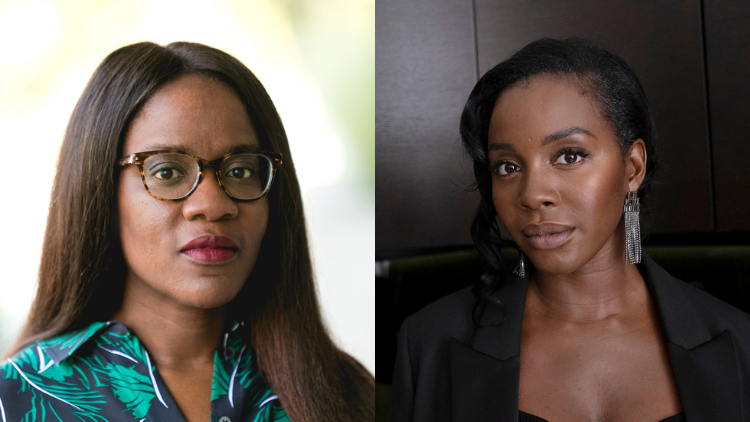
While Abby Ajayi and Deborah Ayorinde have had very different transatlantic journeys to arrive at their current success, both have come to similar conclusions about inequality of opportunity in the British television industry.
Ayorinde says that the UK is, ‘unfortunately, behind the US in its portrayals of different people, especially people of marginalised groups. There is performative diversity and inclusion, but I would like to see more genuine diversity and inclusion.’
Ajayi’s career path, in particular, is clear evidence of performative inclusion in the UK. She explains: ‘I had that opportunity where you get to do one episode of EastEnders and then an episode of Hollyoaks. You were never invited back, it was very much “a box has been ticked now”, and that was no way to build a career.’
Eventually, she went for broke and moved to the US for a final push at a TV writing career. Within weeks, she landed a job as a writer with Shonda Rhimes’s production powerhouse Shondaland, maker of Bridgerton and How to Get Away with Murder, which Ajayi was hired for. ‘That immediately validated me. It showed I was capable, even though I had spent a decade trying to get in the door.
‘I’ve since stayed in the States because the professional opportunities there are significantly more interesting.’
To improve the situation, both feel that having an open mind and trust, towards black women especially, will help foster change. ‘There’s a long way to go in terms of letting more people not only have a seat at the table, but having a voice at the table,’ says Ayorinde.
Schemes to promote inclusivity need to be carefully considered, says Ajayi. Because, ultimately, many don’t lead to meaningful opportunities, marginalised creatives spend their limited time and energy going down cul-de-sacs, which disadvantages them further.
‘It makes people feel like they’re ticking boxes and spending their diversity money, but it has to be about actually greenlighting work,’ she says. ‘It’s a slightly depressing indictment of the British industry if black actors, black directors and black writers have to leave home to get the opportunity and the skills and utilise their talent, only to then be welcomed back.’

